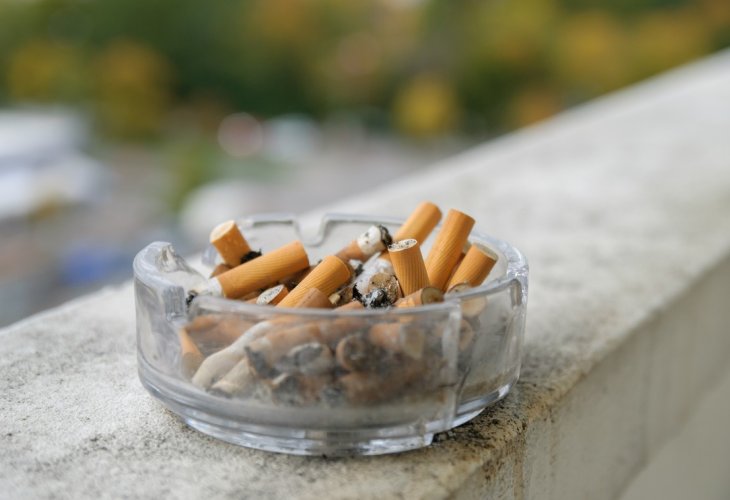Parents Who Smoke? Your Children Are Exposed Even When You Smoke on the Balcony
Many smokers are unaware of recent studies: Smoke particles remain on surfaces, are absorbed into furniture, and nicotine byproducts are found at double levels in the urine of children whose parents smoke even by an open window.
 (photo: shutterstock)
(photo: shutterstock)A study conducted at Tel Aviv University examined the misconceptions leading to children's exposure to cigarette smoke from their parents. The research, published in Nicotine and Tobacco Research journal, included comprehensive interviews with 65 parents of young children from secular and religious smoking families in central Israel, and examined parents' perceptions on exposure to smoking.
According to recent data, around 40% of children worldwide are exposed to passive smoking. The reason, according to the study, is that parents are not aware of the extensive exposure from smoking, even in open spaces, by an open window, and in ventilated rooms.
The researchers presented common misconceptions among smoking parents: "If you can't see or smell smoke, my children aren't exposed." However, recent studies prove that our senses are not reliable detectors for smoke, and that 85% of smoke is invisible, with many components being odorless. Additionally, smokers often have a relatively diminished sense of smell.
The study also found that many parents believed if they smoke by an open window, on the balcony, in a designated smoking area, or ventilate the room after smoking, children will not be harmed. In reality, urine tests of children whose parents smoke by open windows showed double the level of cotinine (a nicotine byproduct) compared to children whose parents do not smoke.
It is important to understand that smoke lingers in the air for many hours; smoke particles that remain on surfaces and are absorbed into furniture upholstery can be released into the environment even a year or more later. Also, exposure to cigarette smoke can occur even in open areas.
Findings from other studies indicate that it takes an average of almost 3 hours, sometimes even 5, for the air quality inside homes to return to its original state after smoking indoors. Another study found smoke particles found up to about four meters away from the smokers.
The study's conclusion is clear-cut: "Many parents believe they are taking sufficient measures to protect their children from the harms of cigarette smoke, but it turns out they are often unaware of the exposure and therefore do not take adequate measures to protect their children," said the researchers. "To protect children from passive smoking, parents must be convinced that exposure occurs, even when they themselves cannot sense the smoke," the researchers noted.

